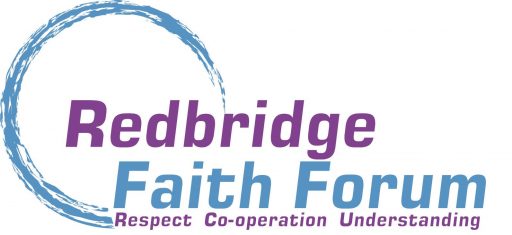Wednesday 14 July 2021- Resilience and Recovery Workshop on Zoom
Redbridge Faith Forum was delighted to partner with NHS Talking Therapies Team Members to deliver a workshop on this important topic via zoom. Many thanks to Dr Ranjot Bhogal and Jenny Palmer for creating this presentation for us and taking time to deliver it virtually. A summary of what was shared follows.
Attendees were reminded that resilience is not a fixed trait in a person but can be learnt using the five domains – purpose, self, connections, body and mind. These domains are the basis of Cognitive Behavioural Therapy which encompasses how we think and feel.
Purpose
It is important to identify our values/passions and get a balance between work, connections and self. Values include how we live, how we relate to others, where we work and we can feel stressed if we are spending too long on something that it not related to our values. It is therefore important to consider what people, what roles, what projects are important to us – what gives us satisfaction. (This may be a hobby). We may need to reintroduce passions back into our lives but acknowledge that some may change over time. If we are putting too much effort into just one area that can cause stress.
Self-esteem
If our self-esteem waivers we can become less resilient and over critical focussing on minor things. It is important to remember that our thoughts on how we view our strengths and weaknesses are not factual. Some people will say that the lockdown has been beneficial for their mental wellbeing whereas others found it hard being socially isolated – some may have discovered that they have other skills or strengths during this time. It is helpful to remember to engage in compassionate self-talk and talk to yourself as you would a friend not harshly but encouragingly as it is easy to fall into the trap of being “hard on ourselves” which is not helpful.
Connections
Social connections are vital – especially belonging to groups that reflect your values. (Faith communities are a good example). However, relationships can also be stressful so it is important to set boundaries and maybe at times be prepared to break a connection and move on if it is not helpful and making the situation worse. Keeping relationships going does involve reaching out to others and does require effort.
Body
To be resilient in mind we need to have a healthy body. Sleep deprivation has a bad knock-on effect and a healthy diet is also really important. Rest is required to clear our minds and exercise is beneficial. When we are under stress or feeling overwhelmed our bodies are most affected and we are likely to exercise and sleep less and turn to unhealthy comfort food.
Mind
Resilient people are often optimistic and are able to hope for the best but prepare for the worst. Circumstances may be beyond our control but how we react to them is. If we can react to situations in a SMART way it will be helpful. Specific, Measurable, Attainable, Relevant and Time-based. Think of a problem we may be worrying about and decide if there is anything within our control to do about it – if there is then consider the advantages and disadvantages of the available options. Then formulate and execute your plan and review the outcome. By being goal orientated we can work more smartly but remember goals are adjustable and not fixed so don’t set yourself up for failure.
